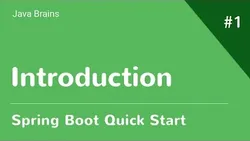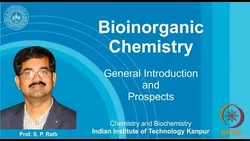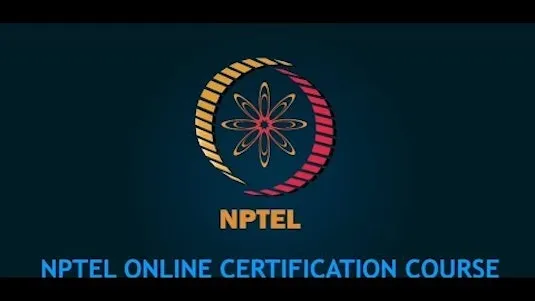
Plant Biochemistry and Plant Biotechnology 
This course provides an overview of plant biochemistry and biotechnology, including topics such as photosynthesis, respiration, nitrogen cycle, growth hormones, secondary metabolism, plant tissue culture, genetic engineering, gene transfer methods, transgenic plants, and molecular markers. It aims to equip learners with the fundamental knowledge of plant biochemistry and biotechnology to be used in crop improvement. ▼
ADVERTISEMENT
Course Feature
![]() Cost:
Cost:
Free
![]() Provider:
Provider:
Swayam
![]() Certificate:
Certificate:
Paid Certification
![]() Language:
Language:
English
![]() Start Date:
Start Date:
17th Jan, 2021
Course Overview
❗The content presented here is sourced directly from Swayam platform. For comprehensive course details, including enrollment information, simply click on the 'Go to class' link on our website.
Updated in [March 20th, 2023]
This course provides an overview of Plant Biochemistry and Plant Biotechnology. Learners will gain an understanding of the fundamentals of plant biochemistry, including photosynthesis, respiration, nitrogen cycle, growth hormones and secondary metabolism. The course will also cover plant tissue culture and genetic engineering, as well as gene transfer methods for plant transformation and the applications of transgenic plants. Finally, learners will be introduced to molecular markers and their application in crop improvement.
[Applications]
Upon completion of this course, learners can apply their knowledge to develop new plant varieties through genetic engineering, create transgenic plants, and use molecular markers to improve crop yields. They can also use plant tissue culture to propagate plants in vitro, and use biochemistry to understand the growth and requirements of plants. Additionally, learners can use their knowledge to develop new methods of plant biotechnology and biochemistry.
[Career Paths]
Recommended Career Paths:
1. Plant Biochemist: Plant biochemists are responsible for studying the biochemical processes of plants, such as photosynthesis, respiration, nitrogen cycle, growth hormones and secondary metabolism. They use their knowledge to develop new methods of plant growth and manipulation. Plant biochemists are also involved in the development of new plant varieties and the improvement of existing varieties. The demand for plant biochemists is expected to increase in the coming years due to the growing need for sustainable food production.
2. Plant Biotechnologist: Plant biotechnologists are responsible for the development and application of biotechnological techniques for the improvement of plants. They use genetic engineering and tissue culture techniques to develop new varieties of plants with desired traits. Plant biotechnologists are also involved in the development of transgenic plants and the use of molecular markers for crop improvement. The demand for plant biotechnologists is expected to increase in the coming years due to the growing need for sustainable food production.
3. Plant Geneticist: Plant geneticists are responsible for studying the genetic makeup of plants and their interactions with the environment. They use their knowledge to develop new varieties of plants with desired traits. Plant geneticists are also involved in the development of transgenic plants and the use of molecular markers for crop improvement. The demand for plant geneticists is expected to increase in the coming years due to the growing need for sustainable food production.
4. Plant Breeder: Plant breeders are responsible for developing new varieties of plants with desired traits. They use their knowledge of plant genetics and biochemistry to develop new varieties of plants with desired traits. Plant breeders are also involved in the development of transgenic plants and the use of molecular markers for crop improvement. The demand for plant breeders is expected to increase in the coming years due to the growing need for sustainable food production.
[Education Paths]
Recommended Degree Paths:
1. Plant Biochemistry: Plant biochemistry is a field of study that focuses on the biochemical processes that occur in plants. It is a rapidly growing field, with new discoveries being made every day. A degree in plant biochemistry can lead to a career in research, teaching, or industry. Developing trends in this field include the use of molecular biology techniques to study plant metabolism, the development of new crop varieties, and the use of biotechnology to improve crop yields.
2. Plant Biotechnology: Plant biotechnology is a rapidly growing field that focuses on the manipulation of plants for various purposes. It involves the use of genetic engineering, tissue culture, and molecular markers to improve crop yields and develop new varieties of plants. Developing trends in this field include the use of gene editing techniques to modify plants, the development of new crop varieties, and the use of biotechnology to improve crop yields.
3. Plant Genetics: Plant genetics is a field of study that focuses on the genetic makeup of plants. It is a rapidly growing field, with new discoveries being made every day. A degree in plant genetics can lead to a career in research, teaching, or industry. Developing trends in this field include the use of molecular biology techniques to study plant genetics, the development of new crop varieties, and the use of biotechnology to improve crop yields.
4. Plant Pathology: Plant pathology is a field of study that focuses on the diseases that affect plants. It is a rapidly growing field, with new discoveries being made every day. A degree in plant pathology can lead to a career in research, teaching, or industry. Developing trends in this field include the use of molecular biology techniques to study plant diseases, the development of new crop varieties, and the use of biotechnology to improve crop yields.
Course Provider

Provider Swayam's Stats at AZClass
Discussion and Reviews
0.0 (Based on 0 reviews)
Explore Similar Online Courses

Asynchronous Programming in C# and NET Core

Spring Boot Quick Start

Python for Informatics: Exploring Information

Social Network Analysis

Introduction to Systematic Review and Meta-Analysis

The Analytics Edge

DCO042 - Python For Informatics

Causal Diagrams: Draw Your Assumptions Before Your Conclusions

Whole genome sequencing of bacterial genomes - tools and applications

Principles of Biochemistry

Bioinorganic Chemistry

Essentials of Biomolecules : Nucleic Acids and Peptides
 Related Categories
Related Categories
 Popular Providers
Popular Providers
Quiz
 Submitted Sucessfully
Submitted Sucessfully
1. Which of the following is not a technique used in plant biotechnology?
2. What is the main purpose of plant biochemistry?
3. Which of the following is a secondary metabolic process?


Start your review of Plant Biochemistry and Plant Biotechnology